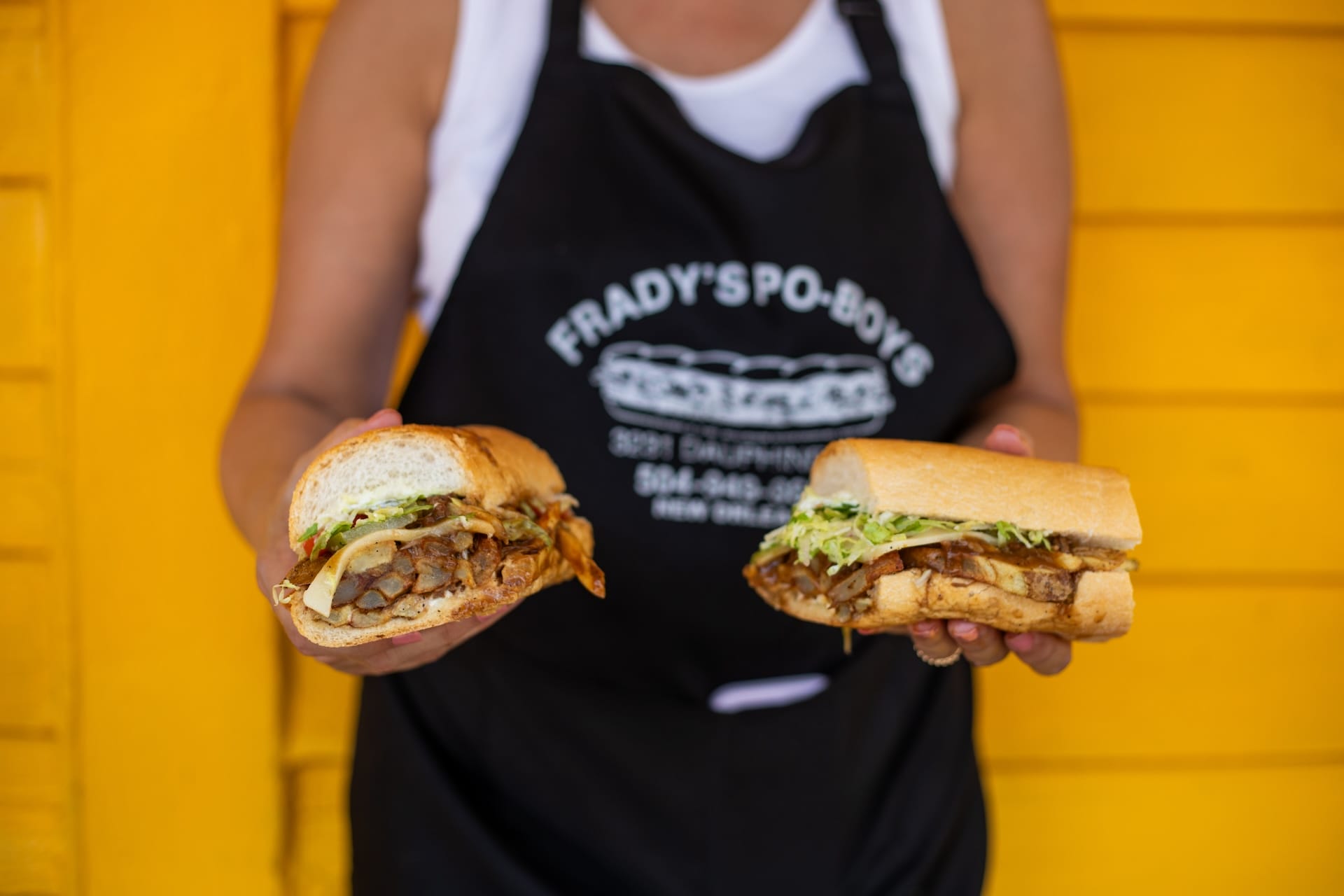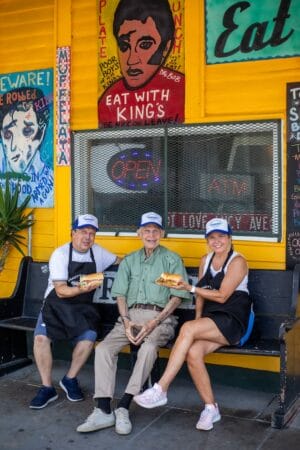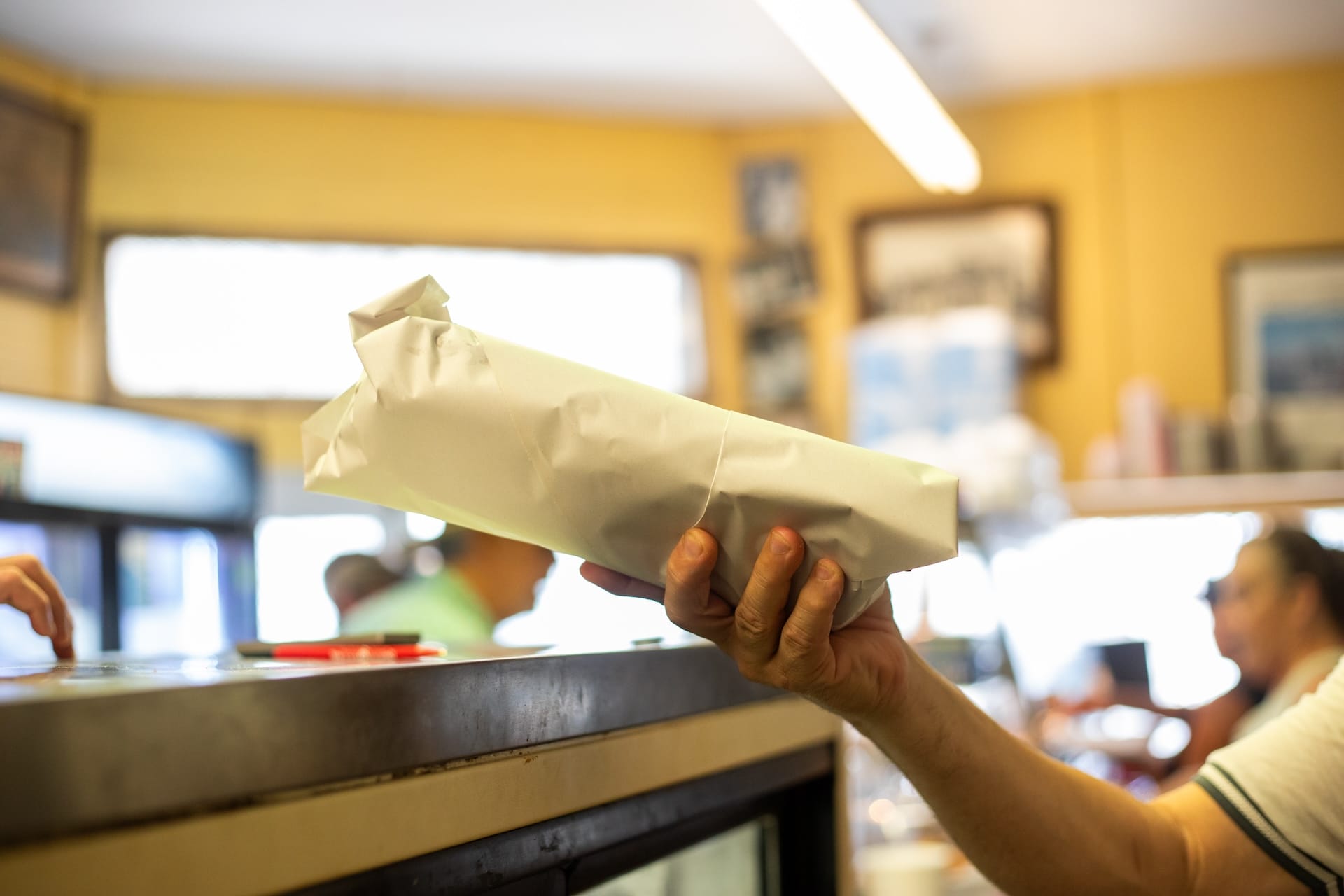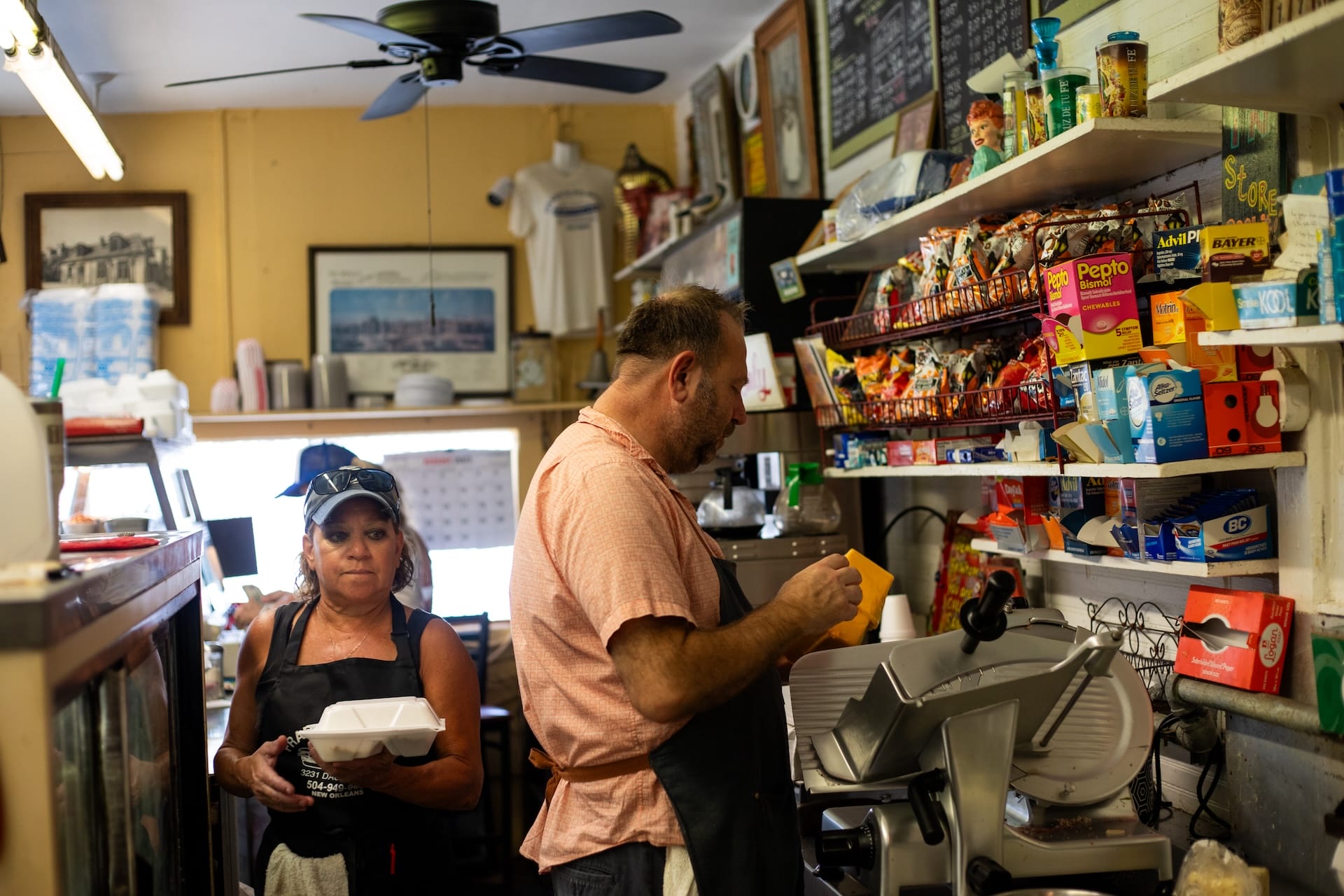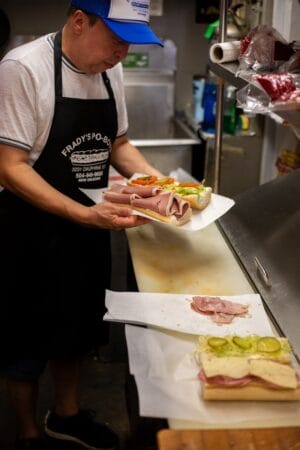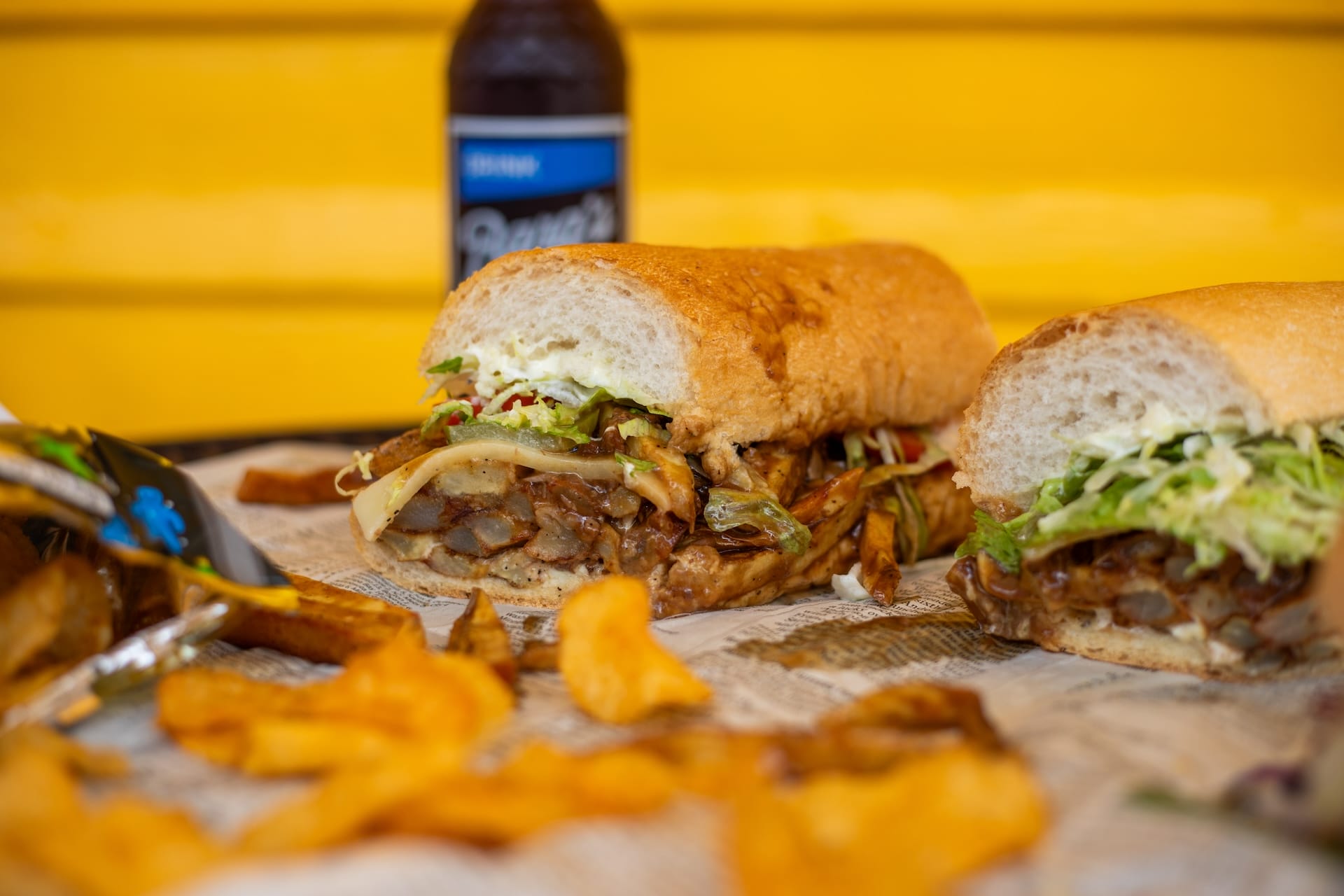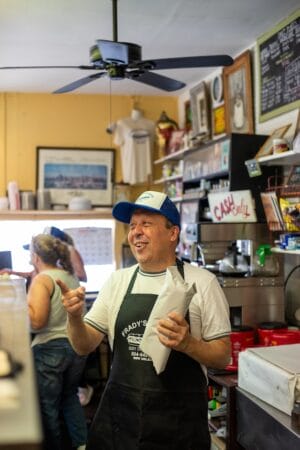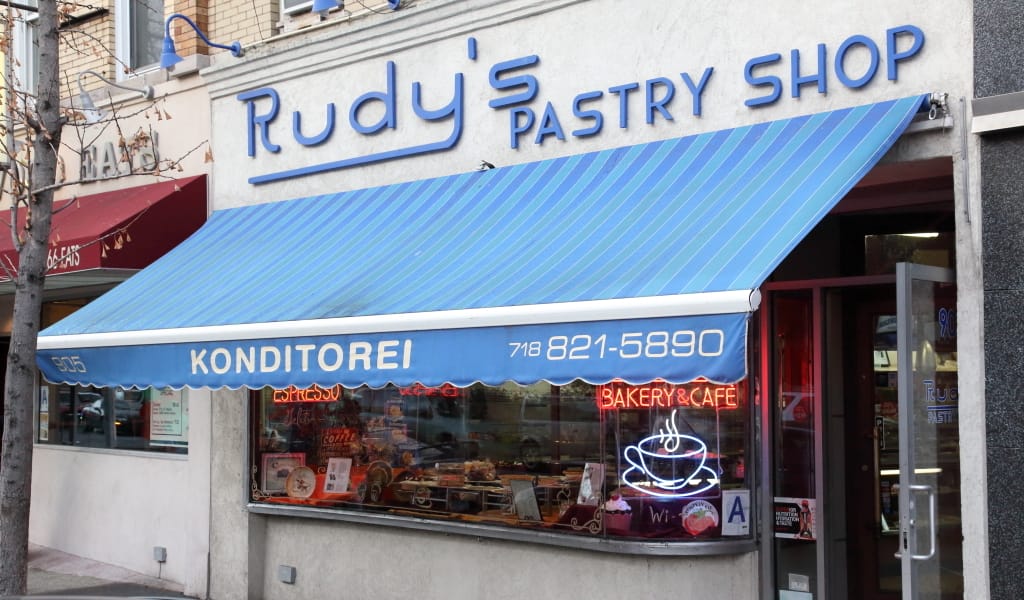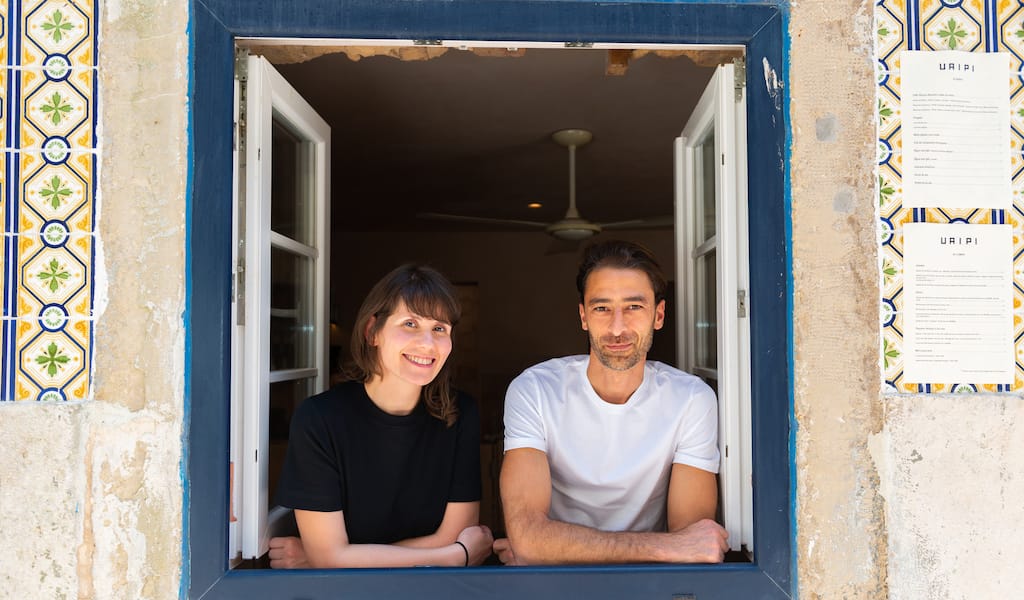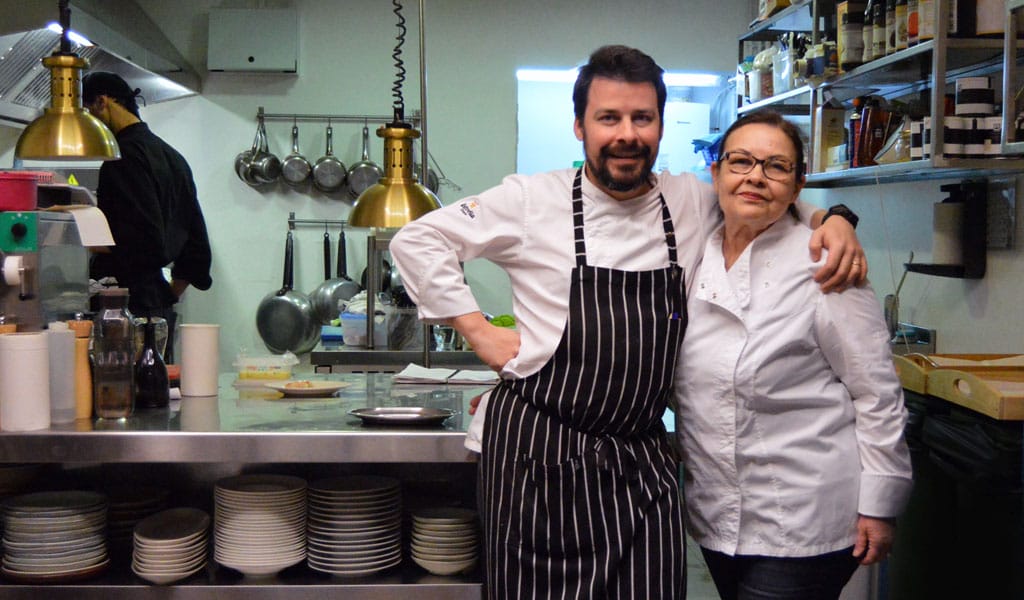Kirk and Kerry, brother and sister, are the heart and soul of Frady’s One Stop Food Store, a Bywater neighborhood institution that has been around in some shape or form since 1889. After a typically busy lunch rush, the duo sit at a table outside the yellow-painted shop, watching over their quiet corner of New Orleans.
They shout hello to an older neighbor as he totters by. Kerry notices his limp and asks Kirk about it.
“It’s been like that since his surgery,” Kirk says, “but he told me it’s improving.”
Moments later, Kirk worries about another neighbor, Sally. Her car is parked across the street and hasn’t been moved for days.
“I texted her,” Kerry assured him. “She’s just out of town.”
The siblings take pride in looking out for their community, and their community looks out for them, too. Customers say Frady’s isn’t just a business, but also an important part of their day.
“They come to joke with Kirk, or to see my dad,” Kerry said. “We love our neighbors and they love us back.”
Those neighbors, as well as a steady stream of tourists, come back again and again for daily hot plates they say are the best in town. Red beans and rice on Mondays; potatoes and meatloaf on Tuesdays. Wednesdays are reserved for dirty rice and pork, while Thursdays mean chicken with Frady’s renowned baked mac and cheese. Jambalaya and catfish are the special on Fridays, and a long list of po’boys, muffulettas, and sides grace the menu daily. In addition to their home-cooked meals, Frady’s lives up to their “One Stop Food Store,” title, selling packaged snacks, drinks, toiletries, and most everything else you would expect from a corner store.
The space that Frady’s occupies has been serving the Bywater neighborhood for 135 years; in the late-19th century, when the Bywater was full of German immigrants, this corner housed a German-owned, open-air produce stand. After World War II, Flick’s Meat Market was built in its place, operating until 1972 when Kirk and Kerry’s father, Joseph, purchased it.
“The building was green and white,” Kerry said, “but my dad read that yellow made people hungry or something, so he painted it.”
Joseph worried the shop couldn’t survive simply as a market, so shortly after taking over, he began selling po’boys. Seven-year-old Kirk could barely see above the register at the time, but helped when the shop was busy, which was often. Kirk remembers nearby Piety Wharf was one of many docks operating on the Mississippi River.
“Workers from the dock and naval ships would wrap around the corner every day to pick up po’boys or groceries,” he said. To satisfy the demand, his dad ordered 50 loaves of French bread each morning and another 50 for the afternoon.
“There was a woman that worked for us,” Kirk smiled, “and she would wait outside to scold the afternoon delivery man any time he was late.”
Po’boys were a logical addition to many New Orleans corner markets in the 1970s. Large supermarkets were spreading throughout the country and family-owned businesses were struggling to compete – many were forced to close. Their backs to the wall, some corner stores chose to pivot. Po’boys were the perfect option, as the New Orleans working class were already frequenting these small businesses to purchase the ingredients they needed to make a cold cut po’boy, and gathering with their coworkers outside to assemble the sandwiches themselves.
Some markets began selling cheap, ready-to-eat po’boys directly to these workers. It was something larger grocery stores didn’t do. Decades later, many of today’s most beloved po’boy shops – Frady’s included – got their start this way. Since Joseph first introduced them to his shop, po’boys have become Frady’s calling card.
“It’s an amazing food,” Kirk said. “Poor people eat poor boys and rich people eat poor boys. Tourists eat them and locals eat them. It’s really a New Orleans unifier.”
Despite the changes at Frady’s and surrounding neighborhood over the years, some things remain constant.
“My dad is ninety-two and he still visits every day to yell at us about something,” Kerry laughed, “and people still line up for our po’boys.”
“I call them ‘poor boys,’” Kirk counters, igniting a debate with his sister over the terminology.
A regular settles the argument from a table away, shouting, “I call them the best damn sandwiches in town!”
The quality of Frady’s food has remained consistently loved by the neighborhood for decades. During challenging economic times, it might be expected that portions might be skimped or quality of ingredients could be downgraded. Kirk says those ideas have never been considered at Frady’s.
“It’s not the Joe Frady way – the Joe Frady way is the hard way,” Kirk laughed. “Our dad taught us to take care of our customers, and to find the best ingredients available.”
“We go to a produce stand in the neighborhood for fresh vegetables, and we use those on our po’boys and to make our daily specials,” he continued. “We owe it to our neighbors. They trust us to make them great food, and we owe it to them to reward that trust.”
Published on March 25, 2025







































